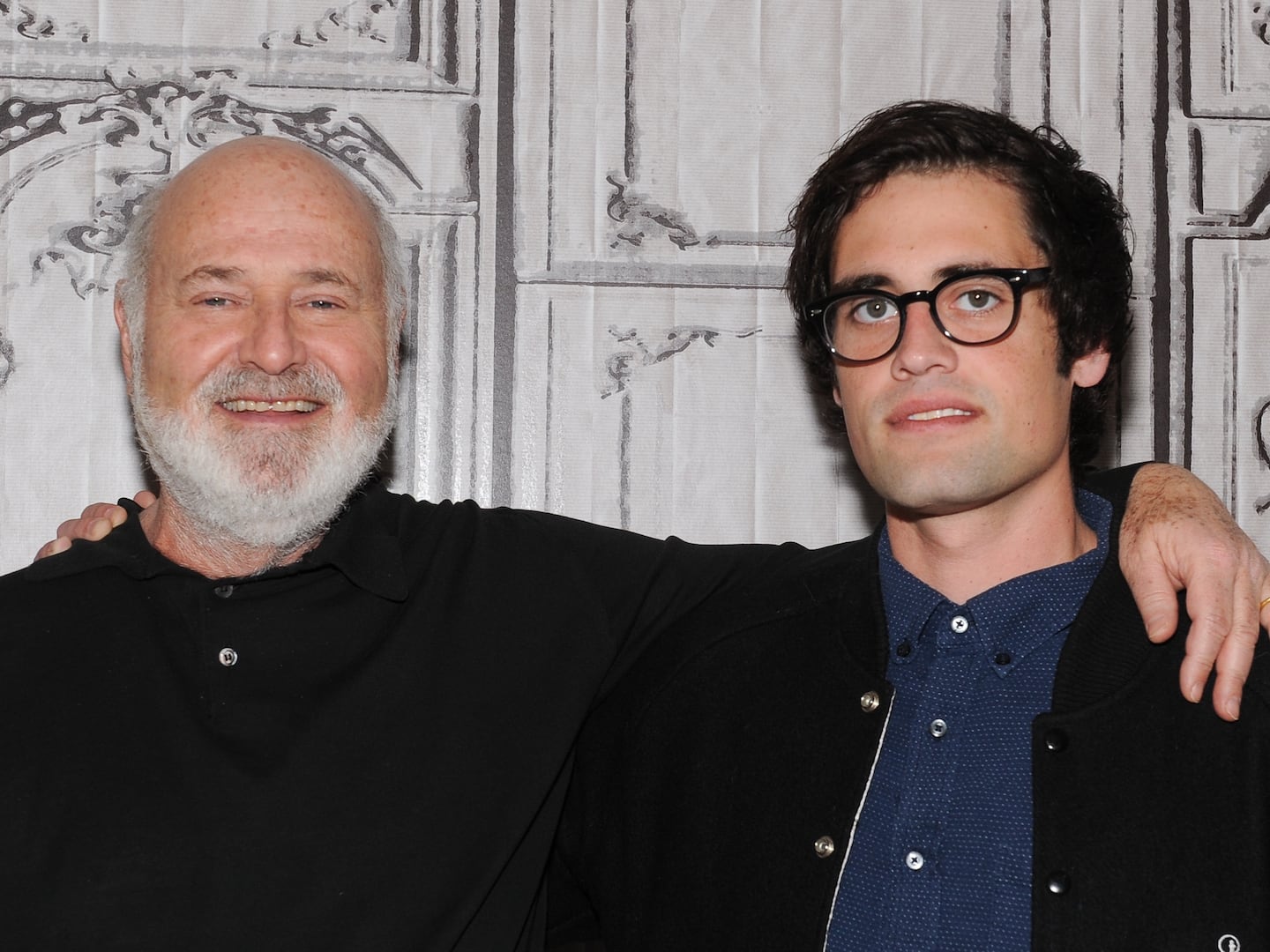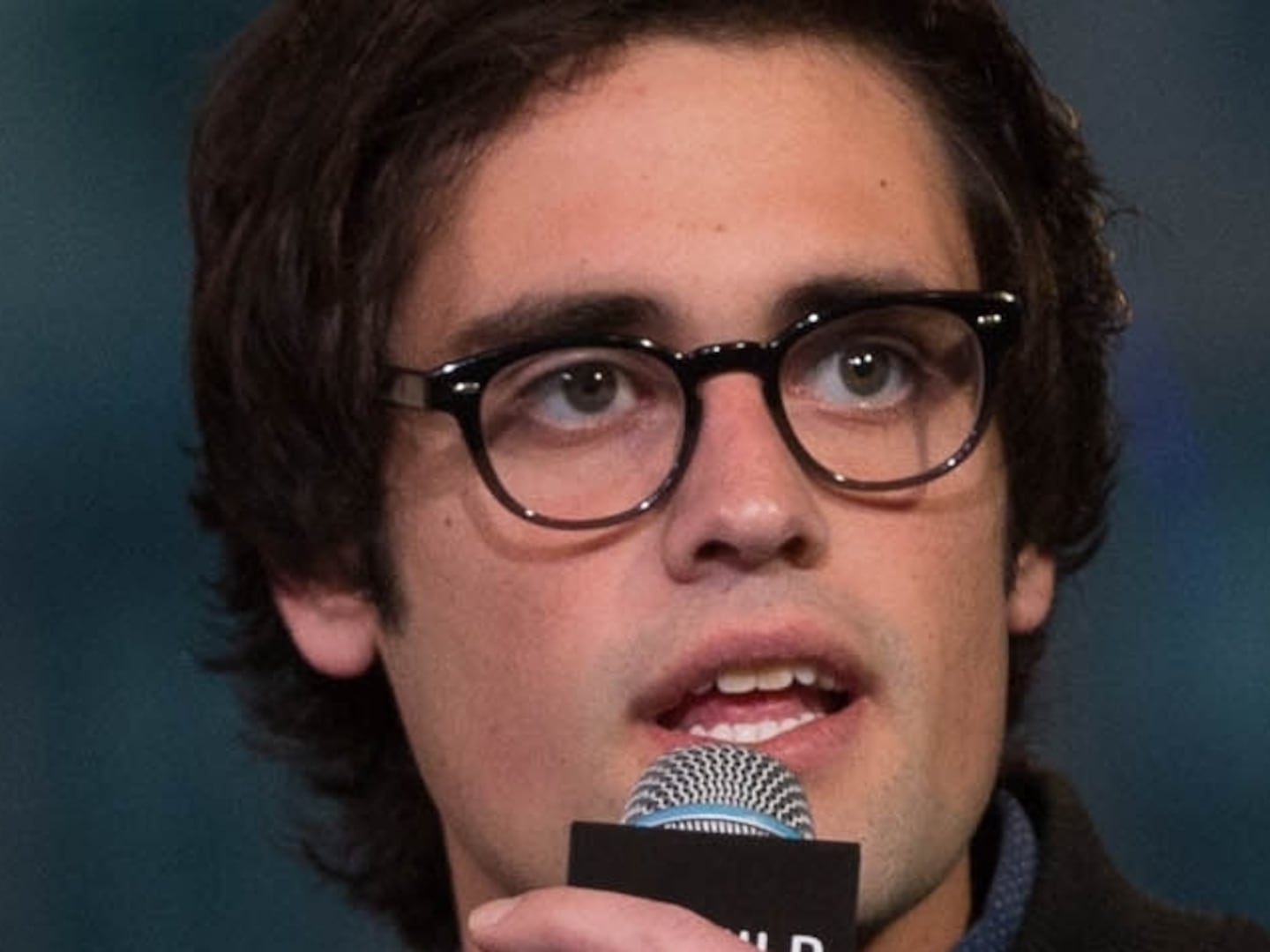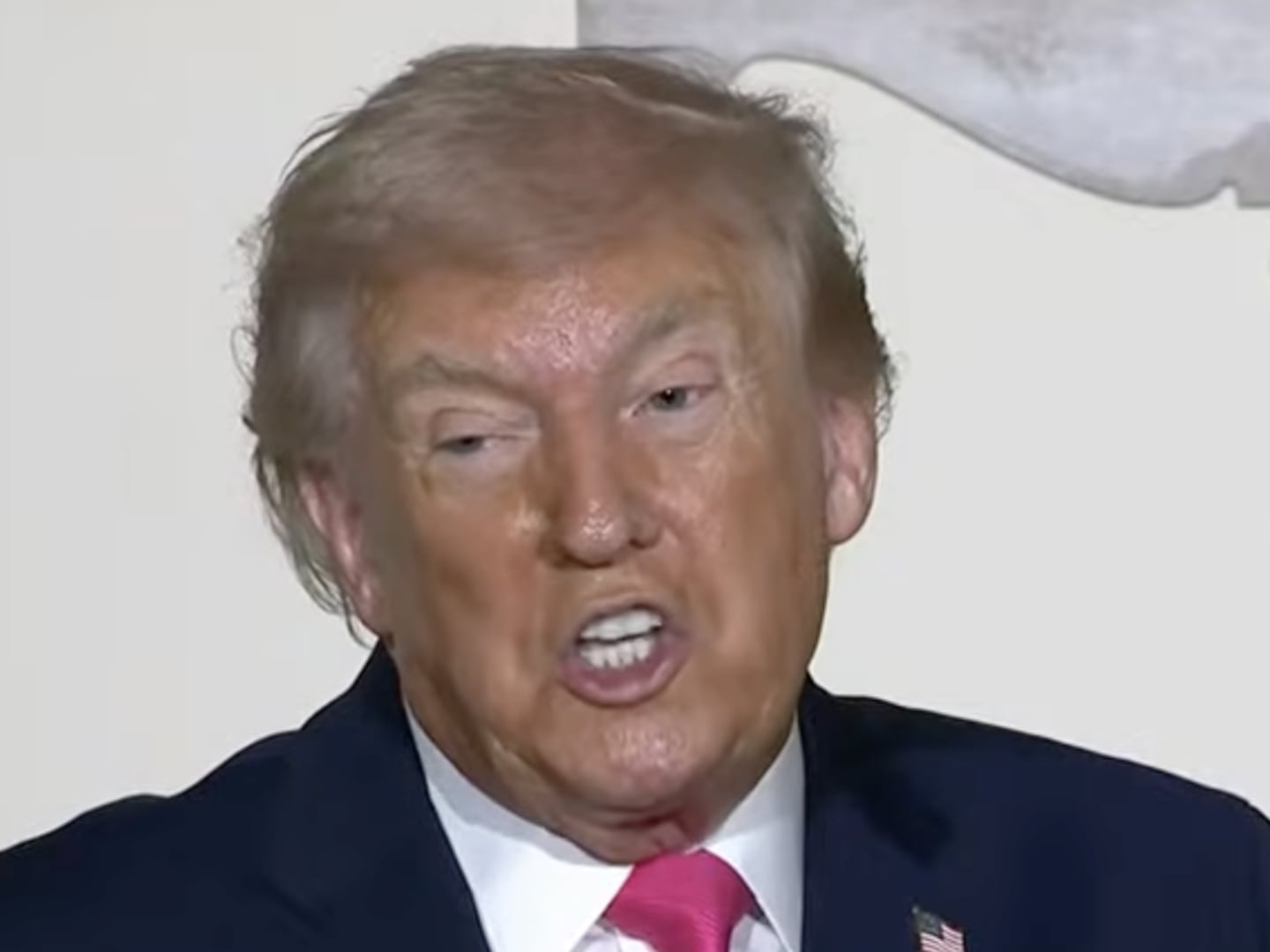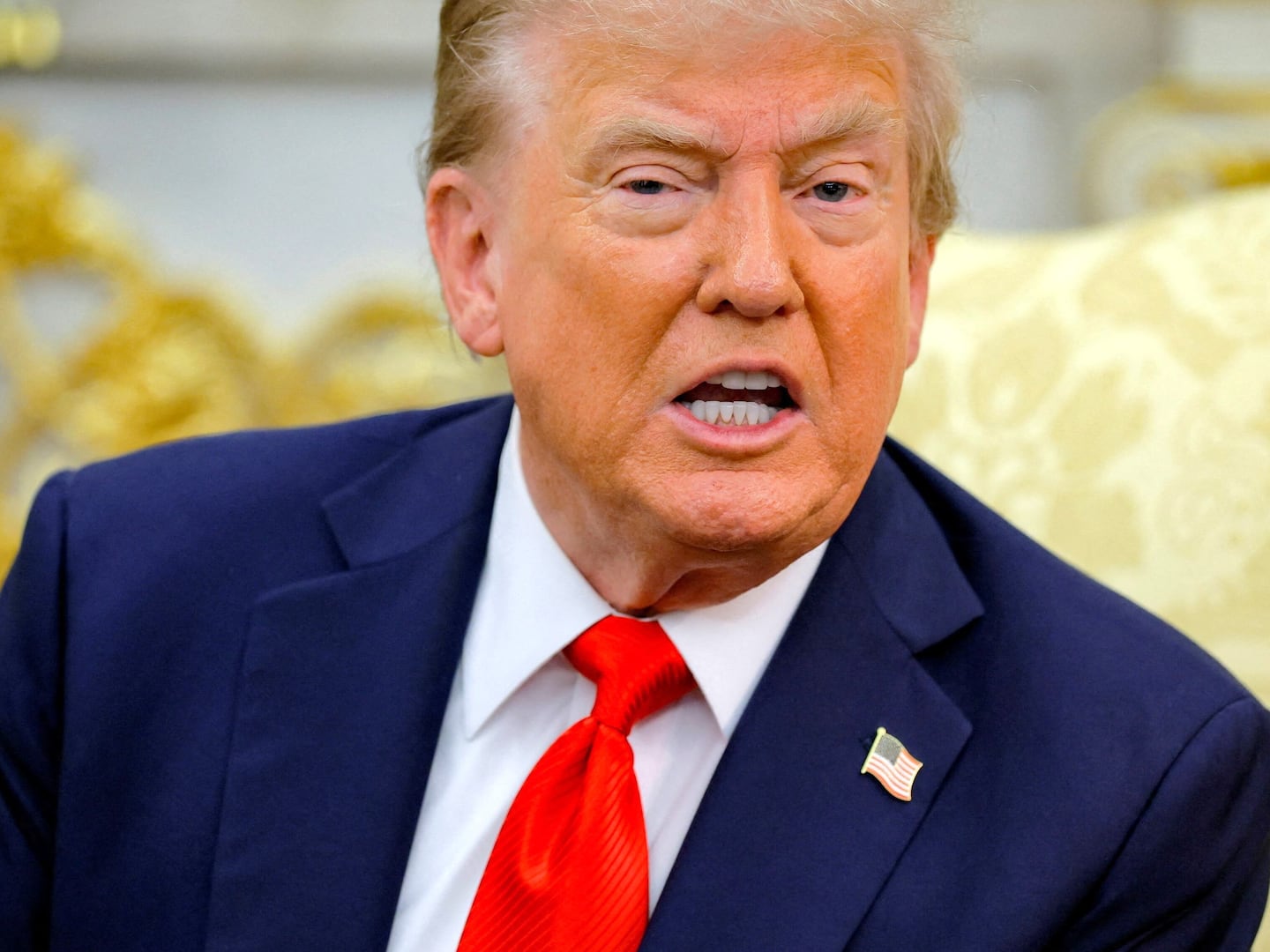Washington superlawyer Ted Olson is a happy man.
“I can’t even begin to describe how good I feel for the people whose lives are affected in a good way,” he told The Daily Beast on Friday, a few hours after the Supreme Court declared same-sex marriage a constitutional right. “It has been an emotional day. I feel just enormously gratified and moved and touched, with tears coming to my eyes, watching these people’s joy.”
Olson added: “The American people have to look at this and say, ‘This is a good thing.’”
Now 74 and a senior partner in the white-shoe law firm of Gibson, Dunn & Crutcher, Olson was one of the country’s more prominent conservative Republican activists—and thus an extremely unlikely gay rights champion—when he signed on to the cause in 2009.
In his political role as a branded right-winger, Olson helped found the Federalist Society, an influential group of conservative and libertarian lawyers; served on the board of the American Spectator magazine; tormented President Bill Clinton as an advisor to Paula Jones’s sexual harassment lawsuit that ultimately resulted in Clinton’s impeachment; and helped prepare the 2012 Vice Presidential nominee, Rep. Paul Ryan, for his televised confrontation with Vice President Joe Biden. (Olson played Biden in mock debates.)
Serving Republican presidents, he was a high-ranking official in Ronald Reagan’s Justice Department and years later was Solicitor General for George W. Bush.
Until Friday morning, Olson would likely have been best remembered as the man who argued successfully before the Supreme Court in December 2000—with America’s democracy in disarray—that it was Texas Gov. George W. Bush, not Vice President Al Gore, who had legitimately won Florida’s 25 electoral votes and thus the White House, never mind the court-ordered recount supposedly progressing in the Sunshine State.
“Well,” Olson said with a laugh when asked which accomplishment he’d consider his legacy—making Bush the 43rd president or helping to nationalize same-sex marriage. “I don’t think about making a legacy or that I made anybody president. But as far as my professional and personal life are concerned, this probably is—no, this is—the most gratifying and meaningful decision.” That is, Friday’s marriage ruling.
“Because every day,” Olson continued, “I bump into people, and people come up to me, or I get email messages and phone messages. Today a person called me from Phoenix and left a voicemail message and he could barely get through it. He was breaking up, crying, trying to say what will he tell his daughter, 15 years from now, about how there was a time when her two daddies couldn’t get married. From a personal standpoint, the fact that so many people’s lives have been helped, a stigma has been removed—well, I can’t do anything that beats that.”
It was a startling display of bipartisanship after the toxically divisive episode of Bush v. Gore when Olson ended up joining forces with Democratic legal eagle David Boies, the lawyer who argued on the losing side for the vice president before the nation’s highest court.
The two erstwhile antagonists toiled together in the successful fight to overturn California’s Proposition 8, which in 2008 invalidated already conducted same-sex marriages and created a state constitutional amendment making future such marriages illegal.
“David Boies was enormously influential,” Olson said. “We disregarded political boundaries—or, better, we spanned political disagreements—so that this unusual combination of the two Bush-Gore antagonists could reach a receptive audience.”
In a way, it was suggested, Olson and Boies might be seen as the Lewis and Clark of societal exploration, pushing out to the frontiers of sociocultural norms. “Well,” Olson joked, “at least you didn’t say Abbott and Costello.”
The two teamed up for the California case, signed on to a second lawsuit in Virginia, and meanwhile made countless speeches and media appearances to influence public opinion, as well as visits to gay-friendly Fortune 50 companies like General Electric, Microsoft and Goldman Sachs to brief executives on the legal and practical implications of their quest for reform. Polls showed a rapid shift in public attitudes; in 2009, a majority opposed gay marriage; today a majority favors it. “It happened with breathtaking speed,” Olson said.
They also filed an amicus brief in the case before the Supreme Court—a brief that Justice Anthony Kennedy, the author of the majority opinion, seems to have read very carefully.
“I don’t know whether his opinion read an awful lot like our brief or our brief read an awful lot like his writings,” Olson said, framing it as a chicken-and-egg question. Kennedy, for instance, quoted liberally from Harvard professor Nancy Cott, the expert witness Boies and Olson called in the California case to explain the institutional history of marriage, and, like their amicus brief, Kennedy noted the necessary synergy between the constitutional principles of due process and equal protection. “Of course, we had been reading his previous opinions,” Olson said, suggesting that since Kennedy had long been identified as the key vote, they had tailored their arguments to an audience of one.
There has been lots of public speculation as to why Olson worked so passionately for the cause. Some have suggested that his own 2006 marriage to a Democratic tax lawyer, Lady Booth, might have played a role. But while it had long been baked into his party’s platform that gay unions were anathema, Olson apparently never agreed with the Republican orthodoxy dictated largely by the party’s Christian conservative wing.
Writing in The Daily Beast, Bush speechwriter David Frum recalled a February 2001 Washington dinner party at which then-Solicitor General Olson (as his then-wife Barbara, a conservative pundit and lawyer, listened silently at the table) “argued very passionately that gays were entitled to every right of straight Americans, and drove home his point by itemizing instances of anti-Semitic discrimination that he, a Gentile, had battled at the beginning of his legal career.”
Frum continued: “This is no different, he insisted. Near the end of the discussion, he predicted that the country—and everybody at the table—would come round to his view sooner or later, probably sooner.”
Seven months later on Ted’s birthday, Sept. 11, Barbara Olson was killed on the Los Angeles-bound American Airlines flight that al Qaeda terrorists hijacked and crashed into the Pentagon. She had called him on her cell phone from the doomed plane, telling him what was happening. He spent many months deep in grief.
But Friday morning was a world apart. All week long, Olson was so excited that the Supreme Court would weigh in, finally, that he and Lady Booth actually dropped by the marbled building on Monday in hopes the decision was about to come down.
This morning, Olson’s assistant followed developments closely on SCOTUSblog and Olson had his television on when the news broke, the Supremes spoke, and pandemonium erupted on the courthouse steps.
“What the American people saw were people embracing, people were exuberantly happy,” Olson said. “You can’t be human and not be moved. You want to exult in their happiness.”
As for Olson, “Lady and some of our female plaintiffs from another case are all going to meet at Café Milano,” he said, mentioning a popular haunt for Washington social set. “We’ll start drinking very soon.”






